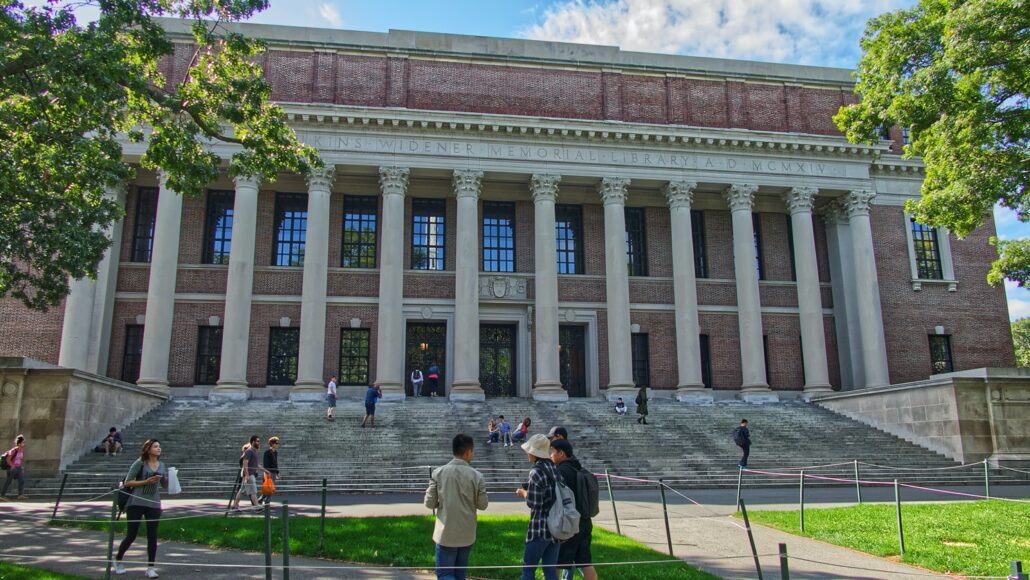The world’s first MBA program was launched at Harvard Business School in 1908 and there was something remarkably similar about everyone involved. All 33 students and 15 faculty members were white men. This hasn’t remained the same to the modern day, but it’s clear when you look more closely at the demographics of most business schools, you won’t find the most diverse results. Leading business schools want change, as do thousands of students, but how can it be achieved?

Harvard asserts their MBA class is made up of approximately 25% ethnic minorities while other schools argue they have a much more diverse makeup, but in reality, the prestigious course still attracts and is therefore most appealing to, the same kind of candidate as those who first signed up in 1908. Students from all economic, cultural, and ethnic backgrounds have the ability and attitude to enroll in an MBA program but large numbers do not feel able to or do not feel the course is designed for them. Course leaders and schools are committed to a more diverse future, in terms of many different underrepresented groups, but how is this coming across in real terms?
Underrepresented Groups and the MBA
African Americans account for around 14% of the US millennial population but make up less than 8% of business school candidates who take the GMAT admission test. Hispanic Americans constitute just 7% of GMAT candidates, despite making up over 20% of the US millennial population. Similar underrepresentation is true for female candidates, with female students accounting for just 34.8% of the class of the top 100 MBA programs in the country on average.
Business school is considered out of reach or not a legitimate choice for many potential candidates from underrepresented groups. The cost of an MBA is unachievable for many, or they cannot match up the cost of the qualification with their potential gains once complete. Research from the Forte Foundation found that a white MBA graduate can expect an average salary of $117,834 one year after graduation while minority graduates earn as much as 16% less. This gap widens even further when comparing white male graduates to females from minority backgrounds. It’s understandable that students may not even want to consider a pathway where the same qualification doesn’t bring them the same rewards. Some experts in the field including MIT Sloan MBA graduate John Benjamin, argue the programs are designed to suit a system already dominated by the elites and prestige. Over time, the admission application process has also become more tedious, complicated and stressful to go through – to the detriment of many minorities and first-generation applicants. Rather than focusing on the problems, however, it’s important to look at the moves being made to create a more equal access approach to MBA and business qualifications and below we’re looking more closely at how it is possible to shift focus and attract a wider and more diverse demographic to these programs.
Redistribution of Funding
Government funding is key to access to MBA programs for many underrepresented groups. In some states there has been a shift in the way funding is operated and allocated. Traditionally, colleges will receive state funding based on the number of students enrolled. However, this is changing in some areas as schools are tying their funding to performance, making higher education more accessible. States can look into the time spent earning a degree, graduation success and job placement rates.
Adoption of New Teaching Methods
Business school may be inaccessible for a number of reasons, and for some, it may be as simple as actual physical access. Online education and learning platforms have developed rapidly in the past twelve months and this allows for a more inclusive approach to teaching as students who may struggle to regularly attend campus can still be involved online. Online tutorials and practice tests allow students to approach their learning in a way which suits their specific learning style, and it can lead to improved results. Technological advancements make it easier to improve interactions between educators and students in a way that wasn’t possible before. It helps increase the number of students able to complete courses and allows access to a wider range of students, including those with disabilities which may make attending in-person difficult.
Embracing Neurodiversity
Access Johnson, at SC Johnson College of Business at Cornell University was founded in 2019. It is the world’s first student organization at a top MBA program which is focused on providing support for neurodiverse and disabled students as well as those advocating for them. It is the kind of program all schools need if they want to attract a more diverse student base. Neurodiversity is something the organization champions and celebrates, rather than seeing it as a problem. Neurodiverse students bring their own unique skills to the program and their workplaces afterwards. This has been evidenced by software company SAP who have actively recruited more employees with autism spectrum disorder. CEO Christian Klein explained: ““SAP teams who have colleagues with autism report a rise in patent applications, innovations in products, and an increase in management skills and empathy.” This shows the benefits of embracing and accepting neurodiversity and how at all stages from college to senior management, there is a place for different skill sets and backgrounds.
Offer Faster Graduation
The dropout rate of people leaving school before getting their degree is much higher than we should accept. Students should have the opportunity to earn their qualifications faster, or indeed slower, to suit their lifestyles and provide a more accessible environment for all. Students are often found to be completing courses in order to earn enough credits but sometimes these credits exceed the required amount to qualify for their degrees. The US college system needs to adapt and update to work more efficiently and create clearer paths to graduation.
Tackling Elitism Head-On
The world’s leading business schools are stepping forward and making the changes necessary to move away from the white male norm. Students aren’t afraid to call schools out if they feel they aren’t providing an equal opportunities environment and school managements and faculties cannot sit back and ignore claims of diversity problems.
Making Diversity Actionable
Haas School of Business at UC Berkeley has faced several issues with its diversity quote. Diminishing numbers of African American students led them to release a Diversity, Equity and Inclusion Action Plan. This plan included hiring a dedicated DEI Officer and increasing scholarship funding for candidates from underrepresented groups. They also established their first Diversity Admissions Council. This type of response shows schools recognize the elitist nature of the past cannot and should not be maintained.
Teaching Students Young
Owen Graduate School of Management at Vanderbilt University has taken a different approach. Their focus is showing high school students from low-income, and minority values the importance of business and leadership skills. Their Youth About Business program introduces core concepts of business and management to high school students, inviting them to understand the benefits of a future or career in this sector. The results do not disappoint, with 70% of those involved in the program going onto careers in business.
Listening to Diverse Voices
To get a real understanding of why MBA programs feel inaccessible and unachievable for people from underrepresented backgrounds, you need to speak to the people themselves. This is what University of Winnipeg researcher Dr Katherine Breward is trying to do for disabled students. Her study looks to understand and eventually improve MBA program experiences for disabled people. Working with GMAC and the University of Toronto she launched what is recognized as the world’s first study on disability in global MBA programs. While the results are not published as yet, she looked to find out how graduates, as well as current and potential MBA candidates with disabilities feel and share their experiences in key areas: pre-admission, social, academic, recruitment and post graduation. The results of this study will, it is hoped, serve to shape future course programs and bring into the consideration of disabled applicants and students.
Technology Driving the Future of the MBA
The MBA has been pushed aside by many because of the cost and the elitism label attached to it, but technology is becoming a key driving force in changing this, especially for people willing to consider an online MBA. The cost of a traditional, full-time MBA is not feasible for the average person, even those currently working in top business organizations. Alternatively, an online program can be tailored and flexible around work commitments and still be achieved in good time. Hofstra University saw online MBA enrollments double between Fall 2025 and Summer 2025. The ability to study flexibly over a longer period of time also allows students to spread the financial burden and achieve the qualification at a speed which suits their working life as well as their budget. Historically, getting a mentor or college admissions consultants to help navigate College or MBA applications has largely been for insiders and the ultra-wealthy. Technology has lowered these barriers to entry, with more MBA Admissions Consulting and College Admissions Consulting firms today than ever before.
Universities like Hofstra have relaxed their work experience requirements, with some candidates having as few as 4 years’ experience whereas the minimum previously was closer to 12. Most still have over 10 years’ experience before embarking on their MBA and the qualification still holds real value even when spread over a much longer period of time. The uptake in online MBA sign ups at a number of schools, in addition to Hofstra, shows how the ability to utilize the latest technology and a more flexible approach is beneficial for students who may need to spread the the cost of the qualification or do not have the time or ability to attend in-person seminars and tutorials. Online prep courses also help to fast-track students looking to pass the GMAT and embark on their chosen program.
As already mentioned, technology also gives students the opportunity to learn from home more effectively as well as attending in-person classes and seminars, with a blended approach to learning creating a more accessible program and the chance for students to study in a way which best suits their needs and fits around their lifestyles. Being able to study at a rate and in a way which is suitable for you personally increases the chances of success.
Recommendations for a More Inclusive MBA Environment
The Graduate Management Admission Council works globally and brings together the world’s best graduate business schools. They recognize like all academic organizations that there is a need for change to create a fairer and more inclusive environment for students of all backgrounds. Their publication Understanding Underrepresented Populations in the Business School Pipeline lays out some valuable points for all schools and faculties to consider when recruiting and admitting new students, as well as staff. Some of their key points to consider include:
- Think broadly: diversity can only exist if you think in an inclusion-first way. Every aspect of college life and culture can be influenced by factors relating to diversity and inclusion so they should be considered by decision and policy makers.
- Build partnerships: those advocating for underrepresented groups are not quiet about it so if you’re committed to a more diverse future, seek those groups out and build relationships. Organizations such as Diversity Web, The Consortium and National Society of Hispanic MBAs are always willing to support schools looking to improve.
- Go Grassroots and get local: forget about your traditional advertising and marketing campaigns and do something different. Partner with local schools, reach out through community groups, churches, word-of-mouth and organizations in your local area.
- Speak to your Candidates: Go where they go, reach out to undergraduate groups and organizations and look at building relationships or partnerships with historically Black and Hispanic colleges too.
- Use the voices you have: speak to and encourage students already enrolled on your programs to speak out and become advocates for them. Engage your existing students in future recruitment programs on campus and even contact alumni to see if they’ll return to speak to your students to further demonstrate what an MBA could do for them.
With the right experience and skills, no one should feel an MBA is out of their reach. While the qualification cannot grant you equal access to jobs and salaries, it remains an extremely valuable and useful attainment. MBA graduates are better positioned for many roles and have the capacity to pick and choose between a wider range of opportunities than those opting for other qualifications.
The first MBA program was indicative of its time. In 1908 the number of white male students outstripped every group by the hundreds, if not thousands, but this no longer is the case. Any student should feel they can and will succeed in an MBA program and it is up to the schools and faculty leaders to take a role in supporting this success.
Elitism seems infinitely tied to the MBA and its history, but with programs such as Access Johnson and organizations including GMAC fully committed to inclusivity and enacting change, no one should feel excluded. Improving diversity at school and college level is an important step towards doing the same in the world of work, business environments and the world’s largest organizations.
Bryce Welker is an active speaker, blogger, and regular contributor to Forbes, Inc.com, and Business.com where he shares his knowledge to help others boost their careers. Bryce is the founder of more than 20 test prep websites that help students and professionals pass their certification exams.












